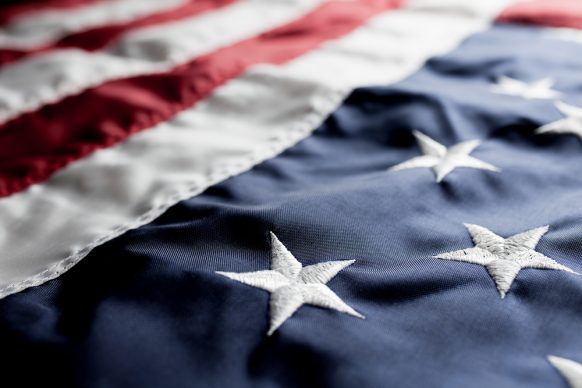Florida, also known as the Sunshine State, is no stranger to gambling. The state permits a variety of gambling options, such as online wagering on horse racing and gambling at land-based tribal casinos. Despite the repeal of the Professional and Amateur Sports Protection Act (PASPA) in 2018, the state is yet to authorize sports betting. Let’s have a look at where Florida stands when it comes to legalizing sports betting.
Is it legal to bet on sports in Florida?
Sports betting is illegal in Florida, with the exception of betting on horse racing, greyhound racing and the ball sport jai alai. Residents can place pari-mutuel wagers on horse and greyhound races at online bookies such as TVG, BetAmerica and TwinSpires, or in person at one of the state’s racinos. Jai alai betting is available at six frontons—-jai alai courts—-across the state.
Betting on jai alai in Florida dates back to the 1920s, when the sport had a huge following. Jai alai was so popular that it was exempt from state and federal bans on sports betting. While there has since been a large decline in the popularity of jai alai, the sport has managed to maintain a presence thanks to the state’s laws around gambling. Florida’s gambling laws require card rooms to offer some form of pari-mutuel wagering such as horse racing, greyhound racing or jai alai betting. It appears that jai alai venues have continued to operate as a means to facilitate other gambling activities in the state.
It doesn’t look like sports betting in Florida will be legalized anytime soon. In November 2018, Florida’s voters approved Amendment 3, an amendment to the state’s gambling laws. This gives voters in Florida the “exclusive right to decide whether to authorize casino gambling in the state.” According to state law, casino gambling in Florida includes sports betting. This effectively removes the state’s elected officials from the decision-making process when it comes to the expansion of gambling in Florida.
Now, a statewide referendum is required to expand the state’s gambling offerings, which can only be triggered via petition. If a referendum is held, it will require approval from at least 60% of voters in order to succeed. As the state’s residents are heavily divided on the topic of gambling expansion, it is very unlikely that legal sports betting will be coming to Florida anytime soon.
The amendment also received support from some of the state’s biggest stakeholders. The Walt Disney Corporation donated over $20m to campaigns in favor of the anti-gambling measure, presenting the view that gambling expansion risks the state’s reputation as a family friendly state. The Seminole Tribe, which operates several tribal casinos in Florida, also supported the amendment. As this tribe has the exclusive right to offer most forms of gambling in Florida, it can be considered a primary gatekeeper when it comes to the state’s gambling industry. Both the Seminole Tribe and Disney are against the expansion of gambling and hold enough sway and influence in the state to challenge any campaign to legalize sports betting.
At the moment, lawmakers in Florida have not introduced any legislation that would legalize sports betting.
Where will I be able to place bets on sporting events in Florida?
As lawmakers have yet to introduce any legislation that would legalize sports betting in Florida, it is unclear where sports betting could take place. If Florida does consider the legalization of sports betting it could take place at one of the state’s gambling venues or even at a tribal casino.
What sports will I be able to bet on?
If Florida does legalize sports betting, it would likely permit betting on all major sports such as NFL, MLB, NBA and NHL, as well as collegiate sporting events such as basketball and football.
What else can I bet on in Florida?
There are several gambling options available in Florida. In the absence of legal and regulated online sports betting, residents and visitors to the state can participate in online fantasy sports games offered by companies such as DraftKings and FanDuel. You can also play the state lottery which offers several games such as Cash4Life, scratch cards and inter-state draws such as Mega Millions and Powerball. Charitable gambling, in the form of bingo, is also legal in the Sunshine State.
The state is also engaged in tribe-state compacts with the Seminole Tribe of Florida and the Miccosukee Tribe of Indians of Florida. These two tribes operate seven casinos between them, with the Seminole Tribe operating six and the Miccosukee operating one. At these venues, you can play a variety of games, including:
- Slots
- Blackjack
- Poker
- Baccarat
- Let it ride
Here are the tribal casinos that operate within the state:
| Casino Name | Location | Contact | Opening Times | |
| Miccosukee Resort & Gaming | 500 SW 177th Ave, Miami, FL 33194, USA | +1 305-222-4600 | Online form | 24 hours |
| Seminole Brighton Casino | 17735 Reservation Rd, Okeechobee, FL 34974, USA | +1 800-360-9875 | Online form | 24 hours |
| Seminole Casino Coconut Creek | 5550 NW 40th St, Coconut Creek, FL 33073, USA | +1 954-977-6700 | Online form | 24 hours |
| Seminole Classic Casino | 4150 FL-7, Hollywood, FL 33021, USA | +1 954-961-3220 | Online form | 24 hours |
| Seminole Casino Hotel Immokalee | 506 S 1st St, Immokalee, FL 34142, USA | +1 239-658-1313 | Online form | 24 hours |
| Seminole Hard Rock Hotel & Casino | 1 Seminole Way, Fort Lauderdale, FL 33314, USA | +1 866-502-7529 | Online form | 24 hours |
| Seminole Hard Rock Hotel & Casino Tampa | 5223 Orient Rd, Tampa, FL 33610, USA | +1 813-627-7625 | Online form | 24 hours |
Are offshore gambling sites legal in Florida?
It is illegal to gamble online with offshore gambling sites. Although Florida’s gambling laws do not specifically mention offshore gambling sites, they can be interpreted to include offshore sites. Under section 849.08 of the state’s gambling law, whoever plays or engages in any game at cards, keno, roulette, faro or other game of chance, at any place, by any device whatever, for money or other thing of value, shall be guilty of a misdemeanor of the second degree.”
Aside from the legality of offshore gambling sites, they are unregulated and do not hold a license to serve customers in Florida. This means they are not required to abide by the same regulatory standards as Florida’s legal online betting options. As these sites are unregulated, they may not have industry standard player protection measures and security features in place.
Additionally, as these sites are often based in other countries, you have no way of knowing who is handling your money once you make a deposit. Offshore sites have also developed a reputation for their use of predatory marketing practices, and in some instances not paying out large winning bets.
You can spot offshore gambling sites by looking at the website’s domain name – domains ending in .EU or .AG aren’t licensed to operate in Florida.
Will it be safe to bet on sports in Florida?
If Florida were to legalize sports betting the activity would be safe and closely regulated to ensure player safety and fairness. Florida’s existing gambling laws are strict and only allow residents to take part in regulated gambling activities that are overseen by the state.
With that being said, punters should be aware that it is up to them to make sure they are gambling responsibly, and never wagering more than they could afford to. If you feel like your gambling habits are getting out of hand or if you suffer from problem gambling, there are several resources available in the Sunshine State. Floridians can contact the National Council on Problem Gambling to ask questions about gambling addiction and access a variety of educational materials to help you understand problem gambling and what steps can be taken to help recover. If you live in Florida you can also contact the Florida Council on Compulsive Gambling to help identify gambling addiction and take steps towards recovery.
You can contact the National Problem Gambling Helpline via:
Call: +1-800-522-4700
Text: +1-800-522-4700
You can contact the Florida Council on Compulsive Gambling via:
Helpline: +1-888-236-4848
Text: +1-321-978-0555
Who regulates gambling in Florida?
The Florida Division of Consumer Services is responsible for overseeing the Sunshine State’s gambling industry. Horse racing in the state of Florida is overseen by the Florida State Racing Commission.
How old do I have to be to gamble in Florida?
To place pari-mutuel wagers and play the lottery, bingo or poker in Florida you must be 18 years old. If you want to play on gambling machines, such as slots, you must be 21 years old.
The journey to legal and regulated sports betting in Florida
1888 – The Bacchus Club Casino, an illegal venue, was opened in St. Augustine
1920 – Boilita, a numbers game that’s origins can be traced back to Cuba, became incredibly popular across the state with illegal gambling venues quickly moving to offer this.
1924 – Hialeah Park opened for business and offered horse racing and jai alai betting, however, betting on these events was illegal at the time.
1931 – The state of Florida legalized betting on horse races and greyhound racing.
1935 – Slot machines and betting on jai alai were legalized in Florida.
1937 – Slot machines and several other gambling activities were banned.
1970 – Florida legalized bingo games.
1979 –The Seminole Tribe of Florida opened a high-stakes bingo venue on their own tribal lands. The venue stayed open despite several attempts to shut it down.
1988 – The Sunshine State decided to legalize a state lottery leading to the creation of the Florida Lottery.
The same year, Congress passed the Indian Gaming Regulation Act (IGRA), establishing rules and regulations for tribal gaming operations.
1992 – Congress passed the Professional and Amateur Sports Protection Act (PASPA) prohibiting sports betting across US states. Four states were made exempt from the law: Nevada, Delaware, Oregon and Montana. These states already had legal sports betting regulations in place.
2004 – A referendum was held where voters authorized casino gambling and slot machines in some of Florida’s counties. The approval of casino gambling and slot machines gave the Seminole tribes the implicit permission to offer slot machines.
2010 – More poker venues opened up in the state after the max $2 bet in poker was relaxed.
2018 – On 14 May, the Supreme Court reached a decision on the legality of PASPA. In a 7 – 2 vote it was agreed that one of the clauses in PASPA violated the Tenth Amendment, as it commandeered states’ power to regulate their own gambling industries. This paved the way for all US states to decide whether or not to legalize sports betting. In the weeks after the repeal of PASPA a number of US sportsbooks launched across the country.
2019 – In November, voters in Florida approved Amendment 3, an amendment to the state’s gambling law that could hinder the legalization of sports betting in the state. The amendment will require any gambling expansion in Florida to be approved via a voter referendum, eliminating state lawmakers from the decision-making process.
Remember, Florida has yet to take any major steps towards legalizing sports betting. Be sure to check back with Compare.bet for updates on the legalization of sports betting in Florida.


